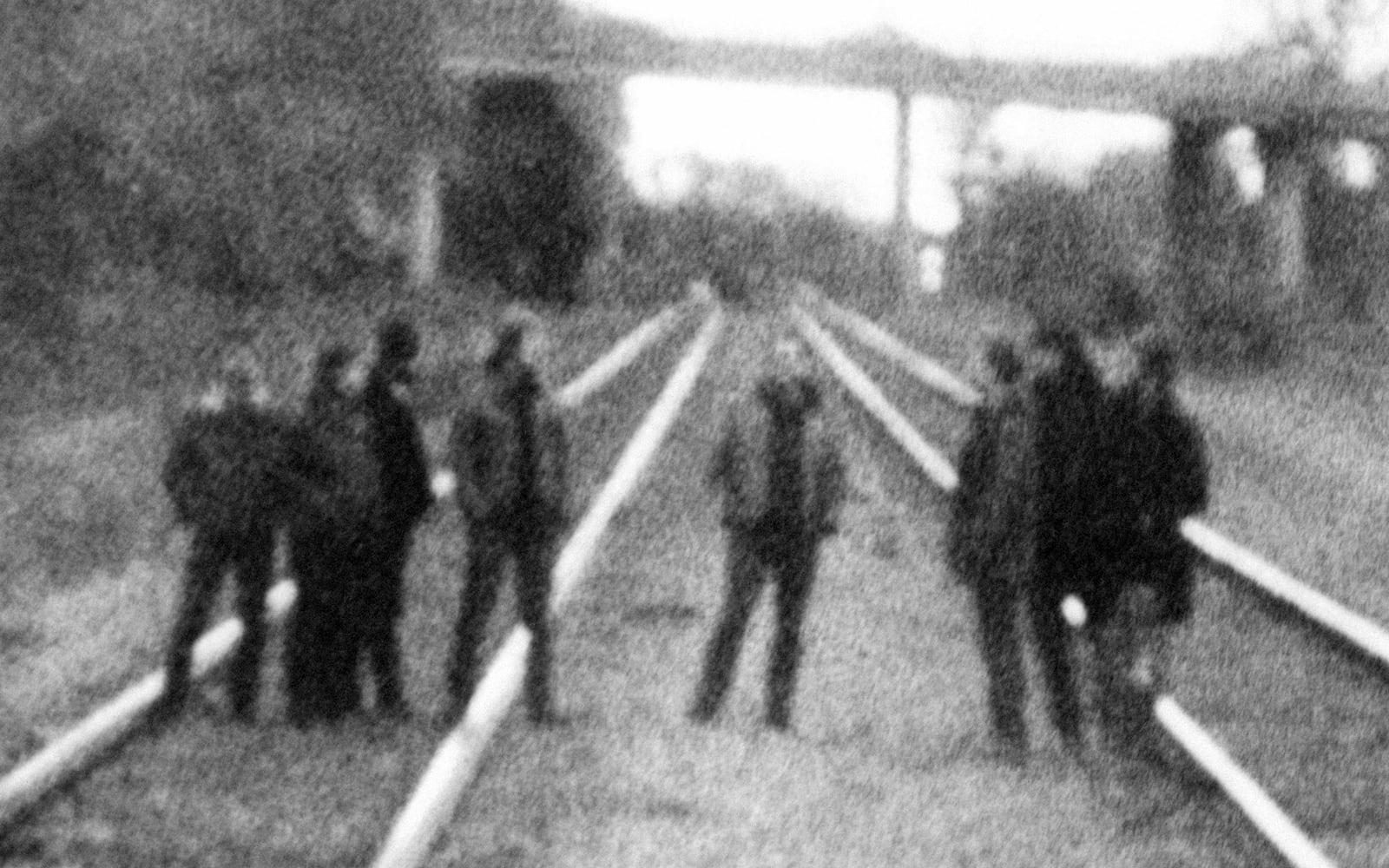Godspeed You! Black Emperor: Finding Beauty in the Apocalypse

Earlier this month, the enigmatic post-rock collective known as Godspeed You! Black Emperor — their name comes from a 1976 Japanese documentary about a biker gang, in case you were wondering — announced that they’d be releasing their first album in ten years. For many folks, myself included, this was a momentous occasion.
During the late 1990s and early 2000s, Godspeed reigned supreme in the post-rock scene. Though other artists (Mogwai, Explosions In The Sky, Sigur Rós) were making similar music at the time, none of them produced anything quite as evocative and haunting as the Montreal-based collective did. Blending Ennio Morricone-esque orchestral arrangements with walls of fiery guitars and pummeling drums, as well as recordings of fire and brimstone preachers and the rants of (possibly) mentally unbalanced individuals, Godspeed painted a picture of a world caught in the throes of paranoia, decay, and corruption.
Their vision was crystal clear even on their debut album, 1997’s F♯ A♯ ∞, which opened with a monologue that sounded like part fever dream, part apocalyptic prophecy. “The car’s on fire and there’s no driver at the wheel, and the sewers are all muddied with a thousand lonely suicides, and a dark wind blows,” the speaker intoned in a gravelly voice. “We’re trapped in the belly of this horrible machine, and the machine is bleeding to death.” Grim stuff, indeed.
But when the band got going, when their lumbering compositions — which often crossed the 20 minute mark — sloughed off the darkness and the guitars and strings began a-soaring and the drums began a-pummeling, that vision suddenly transformed into something… beautiful. It became a cry for help. A call to arms. A plea for light and beauty and hope in the midst of darkness and despair. After 2002’s Yanqui U.X.O., though, the collective became silent. Members moved on to other musical projects such as The Silver Mount Zion Memorial Orchestra and Tra-La-La Band, Exhaust, and Fly Pan Am, and that seemed that.
Which is why this recent announcement was so unexpected, and the forthcoming album, titled ‘Allelujah! Don’t Bend! Ascend!, is so anticipated. After reading about the new album, I pulled up “Moya” from 1999’s Slow Riot For New Zero Kanada. It had been years since I’d listened to the group’s music, and yet, when the band began summoning a dark cloud with their harrowing arrangements, only to pierce through with guitars, drums, and piercing strings, I got excited all over again. Their music had lost none of its potency, and perhaps had even gained something in the ensuing years.
In a long, rambling interview with The Guardian, Godspeed espoused their view of the current state of affairs:
Our cities are broke, they lay patches on top of patches of concrete, our forests cut down and sold to make newspapers just to tell us about traffic that we get stuck in. You get a parking ticket and you waste a day in line. Cop shoots kid, kid shoots kid, homeless man dies waiting to see a doctor, old men lay in hospital beds while a broken bureaucracy steals away what’s left of their dignity. Folks flee to our shores, running from the messes we’ve made in their countries, and we treat them like thieves. Mostly it feels like whatever you love is just going to get torn away. Turn on the radio, and it’s a f*cking horror show, the things our governments do in our name, just to fatten themselves on our steady decline. Meanwhile, most of us are hammering away at a terrible self-alienation, mistreated, lied to and blamed. Burning fields and a sky filled with drones. The fruit rots on the vine while millions starve.
But — and perhaps this is just the fanboy in me who is feeling the thrill of rediscovering a favorite band — if there was ever band that seemed like it could dive headlong into the darkness described above and come out the other side, battered but intact, and beckoning us to follow them, it would be Godspeed You! Black Emperor. As they themselves put it in the interview: “For us every tune started with the blues but pointed to heaven near the end, because how could you find heaven without acknowledging the current blues, right?”
This entry was originally published on Christ and Pop Culture on .